- Home
- Vladimir Nabokov
Vladimir Nabokov: Selected Letters 1940-1977 Page 2
Vladimir Nabokov: Selected Letters 1940-1977 Read online
Page 2
In Montreux, in his later years, Nabokov often lacked the time to answer even the the most deserving letters. At the suggestion of Edmund Wilson—who even sent a sample—cards were printed containing a brief note of thanks and explanation for would-be correspondents.
Autograph hunters were a subspecies apart. Our files abound with cards to which are affixed reproductions of Nabokov photographs, of varying origin and quality, with space provided for the author's signature. Sometimes books would arrive with a request that they be inscribed and returned to some distant address. Or a waiter in some resort hotel would approach the Nabokovs' table, volume in hand, begging that it be signed for his boss or for some client. Nabokov despised the autograph industry, with its bookstore signature orgies and a commerce as brisk as that in baseball cards. He inscribed books only for relatives and close friends, and on certain other exceptional occasions. One of the few autographs he ever sent to an unknown postulant was the result of humanitarian compassion: the chap had written that it was the last wish of his father, condemned to imminent death by cancer. But a year or so later there was a new request, in the same forgetful hand: the last wish murmured by his doomed son was for a Nabokov autograph (or perhaps the order was inverse).
Of particular beauty and interest were the drawings with which Nabokov sometimes decorated letters or books destined for a small number of special people. The drawings that appeared on letters, or on separate sheets and cards, were sometimes figurative, sometimes fantastic, sometimes both at once, with a dash of the unique Nabokovian humor that colors his writing. In the book inscriptions, on the other hand, they almost always represented butterflies, generally nonexistent but often zoologically plausible, and sometimes with invented taxonomic appellations to match. A collection of Nabokov's drawings will appear in a volume of personal recollections, now in preparation.
Rather than overload this introduction with detail, Matthew Bruccoli and I have preferred to place explanatory notes wherever they might be most useful and most readily available to the reader, who will also encounter some amusing surprises. For instance, it has long been a mystery to me, who knew Nabokov well, how the notion could have been born among those unacquainted with him that he was austere, cold, somehow inhuman. Perhaps it was because of his intransigence in artistic matters, his intolerance of philistinism, and his disengagement from chic sociopolitical issues. Nabokov once said:
My characters cringe as I come near them with my whip. I have seen a whole avenue of imagined trees losing their leaves at the threat of my passage.
(1977 BBC interview)
Yet, in his real life and daily discourse, Nabokov was the warmest and most humorous of men, and even his writing took a back seat when he could directly intervene on behalf of an unfortunate man or beast. It is, perhaps, this very dichotomy that is beyond some readers, the kind who move their lips as they read, who are certain the author is giving them slices of his life, and seek out reflected slices of their own to "identify with":
as if we were no longer able
to write long poems
on any other subject than ourselves!
A. Pushkin, Eugene Onegin, tr. V. Nabokov
(New York: Bollingen, 1964)
What upset Pushkin is true of prose as well, and true more than ever today. Letters, on the other hand, allow personality to transpire unrefracted, and these letters will afford the reader unprecedented glimpses of the private Nabokov.
We now have an autobiographical triptych of Vladimir Nabokov:Speak, Memory; Strong Opinions; and Letters. The first of the three books is a meticulously constructed real-life narrative of great beauty. The second is a fascinating collection of facts and sometimes iconoclastic views. The posthumously published third now gives us a direct and spontaneous portrait of the artist—Nabokov from the horse's mouth, as it were.
As for literary biography by other parties, there are, of course, various horses and various parts of horses. However, the reader is advised not to despair: a two-volume Nabokov book by Brian Boyd is due in 1990, and it promises to be a thoroughbred.
Editorial Note
The editorial headings provide bibliographical and archival information for each letter. Thus:
Recipient (or writer) Description & location of the document
Date (if not on the letter.) Place of writing (if not on the letter)
All unlocated letters are in the Vladimir Nabokov Archive, Montreux, Switzerland, ALS denotes an autograph (handwritten) letter signed; TLS denotes a typed letter signed; TL denotes an unsigned typed letter; CC denotes a carbon copy of a TL.
The placement and form of the return address and date on each letter have been retained except when the information is irregularly positioned; in these cases the information has been styled as place followed by date.
Typing or scribal errors have been silently corrected by Véra Nabokov or Dmitri Nabokov. Deletions made by Mrs. Nabokov or Dmitri Nabokov have been identified. Underlined words have been printed in italic type.
The letters often incorporate words from other languages. Russian and French words in English-language letters are translated, except for familiar French terms.
The footnotes have been provided by Véra Nabokov, Dmitri Nabokov, and Matthew J. Bruccoli. Footnotes of a personal nature written by Mrs. Nabokov or Dmitri Nabokov have been so identified. Judith S. Baughman assisted mightily in the preparation of this volume for publication.
M.J.B.
Chronology
23 April 1899
(New Style) Birth in St. Petersburg, Russia, of Vladimir Vladimirovich, first child of V. D. Nabokov and Elena Rukavishnikov Nabokov.
1914 Private publication of one poem, untitled.
1916 Private publication of Stikhi [Poems].
1918 Private publication in Al'manakh: Dva Puti [Almanac: Two Paths] of poems by VN and Andrei Balashov.
15 April 1919
(New Style) Departure from Russia.
1919–1922 Cambridge University.
1922 Settled in Berlin.Grozd' [The Cluster]. Berlin: Gamayun.
28 March 1922 Assassination of V. D. Nabokov.
1923 Gornïy Put' [The Empyrean Path]. Berlin: Grani.
15 April 1925 Marriage to Véra Slonim.
1926 Mashen'ka [Mary]. Berlin: Slovo. New York: McGraw-Hill, 1970.
1928 Korol' Dama Valet [King, Queen, Knave], Berlin: Slovo. New York: McGraw-Hill, 1968.
1929 Vozvrashchenie Chorba [The Return of Chorb]. Berlin: Slovo.
1930 Zashchita Luzhina [The Defense]. Berlin: Slovo. New York: Putnam, 1964.
1932 Podvig [Glory]. Paris: Sovremennye Zapiski. New York: McGraw-Hill, 1971.
1932 Kamera Obskura [Camera Obscura]. Berlin: Sovremennye Zapiski. London: John Long, 1936.Laughter in the Dark. Indianapolis & New York: Bobbs-Merrill, 1938.
10 May 1934 Birth of Dmitri Nabokov.
1936 Otchayanie [Despair], Berlin: Petropolis. London: John Long, 1937. New York: Putnam, 1966.
1937 Arrives in Paris.
1938 Sogliadatay [The Eye], Berlin: Russkie Zapiski. New York: Phaedra, 1965.
1938 Priglashenie Na Kazn' [Invitation to a Beheading]. Paris: Dom Knigi. New York: Putnam, 1959.
1940 Arrives in America.
1941 The Real Life of Sebastian Knight. Norfolk, Conn.: New Directions.
Summer 1941 Stanford University. Lecturer in Creative Writing.
Fall 1941 Harvard University. Part-time position at Museum of Comparative Zoology.
Fall 1941-Spring 1942 Wellesley College. Visiting Lecturer in Comparative Literature.
1943–1948 Wellesley College. Temporary Lecturer in Russian Language and Literature.
1944 Nikolai Gogol. Norfolk, Conn.: New Directions.
1945 Three Russian Poets, trans. VN. Norfolk, Conn.: New Directions.
1947 Bend Sinister. New York: Holt.
1947 Nine Stories. Norfolk, Conn.: New Directions.
1948–1959 Cornell University. Professor of Russian and European Litera
ture.
1951 Conclusive Evidence. New York: Harpers. Speake Memory. London: Gollancz.
1952 Dar [The Gift]. New York: Chekhov. New York: Putnam, 1963.
1952 Stikhotvoreniya 929–95 [Poems 929–95]. Paris: Rifma.
1955 Lolita. Paris: Olympia. New York: Putnam, 1958. London: Weidenfeld & Nicolson, 1959.
1956 Vesna v Fial'te[Spring in Fialta]. New York: Chekhov.
1957 Pnin. Garden City, N. Y.: Doubleday.
1958 Mihail Lermontov, A Hero of Our Time, trans. Dmitri Nabokov with VN. Garden City, N. Y.: Doubleday.
1958 Nabokov's Dozen. Garden City, N. Y.: Doubleday.
1959 Resigns from Cornell; travels in Europe.
1959 Poems. Garden City, N. Y.: Doubleday.
1960 The Song of Igor's Campaign, trans. VN. New York: Random House.
1961 Commences residence at Palace Hotel, Montreux, Switzerland.
1962 Pale Fire. New York: Putnam.Lolita film premiere.
1964 Aleksandr Pushkin, Eugene Onegin, trans. VN. New York: Bollingen/Pantheon.
1966 The Waltz Invention. New York: Phaedra.
1966 Nabokov's Quartet. New York: Phaedra.
1969 Ada or Ardor: A Family Chronicle. New York: McGraw-Hill.
1971 Poems and Problems. New York: McGraw-Hill.
1972 Transparent Things. New York: McGraw-Hill.
1973 A Russian Beauty and Other Stories. New York: McGraw-Hill.
1973 Strong Opinions. New York: McGraw-Hill.
1974 Lolita: A Screenplay. New York: McGraw-Hill.
1974 Look at the Harlequins! New York: McGraw-Hill.
1975 Tyrants Destroyed and Other Stories. New York: McGraw-Hill.
1976 Details of a Sunset and Other Stories. New York: McGraw-Hill.
2 July 1977 Death of VN in Lausanne, Switzerland.
1979 The Nabokpv-Wilson Letters, ed. Simon Karlinsky. New York: Harper & Row.
1979 Stikhi [Poems]. Ann Arbor: Ardis.
1980 Lectures on Literature. New York: Harcourt Brace Jovanovich/Bruccoli Clark.
1981 Lectures on Ulysses. Columbia, S.C.: Bruccoli Clark.
1981 Lectures on Russian Literature. New York: Harcourt Brace Jovanovich/Bruccoli Clark.
1983 Lectures on Don Quixote. San Diego: Harcourt Brace Jovanovich/Bruccoli Clark.
1984 The Man from the USSR and Other Plays, trans. Dmitri Nabokov. San Diego: Harcourt Brace Jovanovich/Bruccoli Clark.
1985 Perepiska s Sestroy[Correspondence with his Sister]. Ann Arbor: Ardis.
1986 The Enchanter, trans. Dmitri Nabokov. New York: Putnam.
LETTERS WRITTEN IN GERMANY AND FRANCE 1923–1939
These fifteen letters provide background on Vladimir Nabokov's family and the preparation for his emigration to the United States.
TO: ELENA RUKAVISHNIKOV NABOKOV1
ALS, 2 pp.
19.vi.23
Soliès-Pont, Alpes Maritimes
My dearest,2
Today I received your dear card in which you say you only got two poems ("Cherries" and another one),3 while, before them, I had sent you a long letter with the two poems "Vecher"4 and "Krestî."5 No problem if the poems get lost (I know them by heart anyway) but I'm sorry about the letter.... Now I send you two short poems (to be followed tomorrow by much better ones) and a longer one (about an actual occurrence; the song en quéstion was the romance "Within your eyes, within your wild caress-es...").
It is evening now, with touching cloudlets in the sky. I took a walk around the plantation, behind the grove of cork oaks, ate peaches and apricots, admired the sunset, listened to a nightingale's twees and whistles, and both its song and the sunset tasted of apricot and peach.
In a large cage near the house, live, all together (and rather messily), chickens, roosters, ducks, peahens, and white rabbits. One of the rabbits was lying with its front paws extended, like a lop-eared sphynx. Then a chick climbed on its back, and both of them had a scare....
All during these days I have felt drawn to the inkwell, but there's no time for writing. For that reason—and because, without you, the sun is not the same, am coming back no later than July 20. I have gained weight and gotten all dark, since I now wear nothing but shorts when I work. I must say I am infinitely glad I came here, and infinitely grateful to Sol. Sam.*...6
V.7
Evening
I heaved from my shoulder my pick and my shovel into a corner of the barn,
I dried off the sweat, ambled out to greet sunset a bonfire cool and rosy-hued.
It peacefully blazed beyond towering beeches, in between funereal boughs,
where fleetingly shimmered ineffable echoes of a vibrant nightingale.
And a guttural din, choirs of toads, gutta-perchalike, sang resilient on the pond.
It broke off. My forehead was trustingly, doumily brushed by the flight of a passing moth.
The hills grew more somber: there, flashed reassuringly a twinkle of nocturnal lights.
In the distance, a train chugged and vanished. A lingering whistle lingeringly died....
The fragrance was grassy. Entranced I stood, thoughtless.
And, when the nebulous hoot was stilled,
I saw night had fallen, stars hung close above me, and tears were streaming down my face.1
TO: KIRILL NABOKOV1
c. 1930
ALS, 2 pp.
Berlin
Dear Kirill,
The poems you sent me are significantly better. The poem "To you, a stranger" ends well; the last two lines are good. The dragonfly etc. image is not bad in the poem about the window, and, thanks to the repetition of the letter P, there is a pleasant sound to the first line "one's soul, suffused with poems and passion." But there are also things that are not good: a flame cannot "flare up gradually" (flaring is an instantaneous phenomenon). Leave to Blok the act of "committing [those] shoulders to memory"; okonnaya dvertsa ["the window's doorlet"] is incomprehensible, and is there to rhyme with serdtse ["heart"], just as, incidentally, further on, okonise ["windowlet"] exists solely for the benefit of solntse ["sun"].
And, above all, beware of platitudes, i.e., word combinations that have already appeared a thousand times like "love's flame," "the Muses' creation" "to sing the beloved," "riotous agitation" and "tempestuous storm" (a pleonasm to boot), "jubilant sea," etc. There is a hackneyed sound as well in the rhythm itself of the poem "When in one's soul": first a stanza on "when," followed by one on "then"—this is mere rhetoric. As a general rule, try to find new combinations of words (not for the sake of their novelty, but because every person sees things in an individual way and must find his own words for them). Do not use epithets that no longer have any meaning ("noisy street"); do not fill in gaps, for a poem must be born whole and tightly packed, and if you must invent some adjective to plug a hole, that means the whole line is bad.
If you designate stressed syllables "/" and unstressed ones here are all the schemes of Russian poetry (when written with regular meter):
The iamb: "- / - / - / - /"("within my soul, those eyes of yours"). Every "- /" pair is called a foot, so here you have four-foot iambic meter, iambic tetrameter.
The trochee is the inverse of the iamb. Its foot is "/ -" ("trochees merit your attention").
There are, in addition, three types of meter whose feet consist not of two but of three syllables:
The amphibrach: - / - ("this too is a meter in which you should write").
The anapaest: - - / ("and this too is a meter in which you should write").
The dactyl: / - - ("also a meter toward which don't be squeamish").
Six-foot dactylic meter = hexameter.2
As you see, this is all simple and can be assimilated in five minutes, with no need for any textbooks.
Answer two questions for me:
Why, in the examples given, does the last foot not correspond to the scheme ("should write" and "squeamish")?
Why is an iambic line (or trochaic one, if you drop the first syllable) like "when impert
urbably at work," in spite of its odd scheme of stressed and unstressed syllables ("---/---/"), nevertheless iambic (or, minus the first word, trochaic)? Try and answer.
Your V.3
TO: KIRILL NABOKOV
c. 1930
ALS, 2 pp.
Berlin
Dear Kirill,
Here is what it boils down to: are you writing poetry as a sideline, because everyone does it, or are you really drawn to it irresistibly, does it surge from your soul, do images and sensations naturally don the dress of poetry, crowding to emerge? If the former is the case, and a poem is only a carefree game to you, a pleasant fashionable entertainment, the desire to hand it with a grim expression to some girl, then forget it, for you are wasting your time.
If, on the other hand, it is the latter (and I would very much like it to be so), then one must first of all realize what a difficult, responsible job it is, a job one must train for with a passion, with a certain reverence and chastity, disdaining the seeming facility with which quatrains fall together (just tack on a rhyme and it's done).
Beware of stereotypes. Thus, for instance, the first verse of your poem (although it does contain errors, but more about that later) is far from being a stereotype, even though it contains discourse about a rose (but an original kind of discourse). What is a stereotype, and a bad one, is your way of rhyming. On more than one occasion I have written in Rul'1 about ugly rhymes that irk the ear and create a comical impression through aural association. Thus, for example, you rhyme mozg ["brain"] and roz [a plural case of "rose"]; where the ear expects a rhyme, the aural sense involuntarily transforms roz into rozg [a plural case of "birch rod"], and these birch rods are comical. Zhadny ["greedy"] and sada [a case of "garden"] or pozharishch [a plural case of "site of a conflagration"] and lapishch [a plural case of "huge paw"] cannot rhyme at all, while raztsvet ["flowering" (n.)] and tsvet ["color"] or kogti ["daws"] and nogti ["nails"] rhyme too obviously, since they are almost identical words, which is bad. A rhyme must evoke astonishment and satisfaction in the reader—astonishment at how unexpected it is, and satisfaction with its precision or musicality.

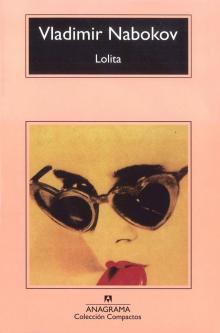 Lolita
Lolita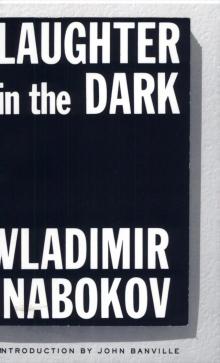 Laughter in the Dark
Laughter in the Dark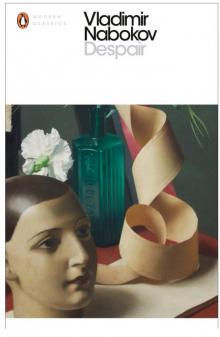 Despair
Despair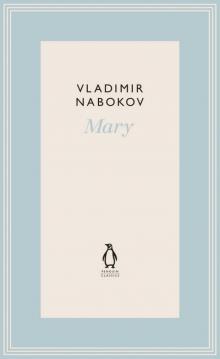 Mary
Mary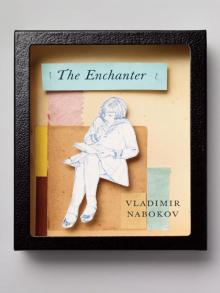 The Enchanter
The Enchanter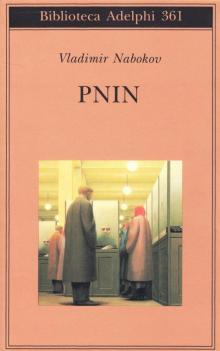 Pnin
Pnin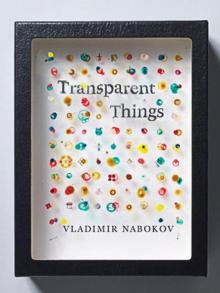 Transparent Things
Transparent Things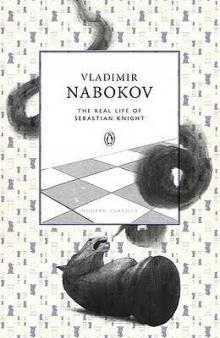 The Real Life of Sebastian Knight
The Real Life of Sebastian Knight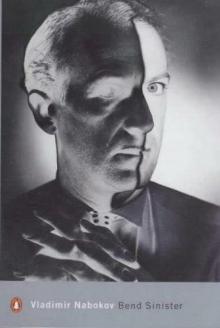 Bend Sinister
Bend Sinister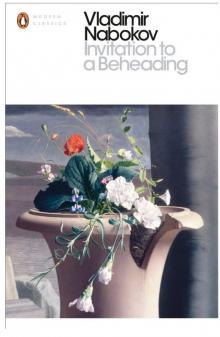 Invitation to a Beheading
Invitation to a Beheading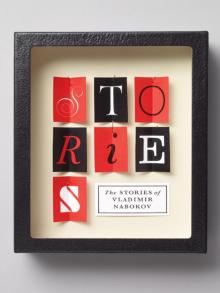 The Stories of Vladimir Nabokov
The Stories of Vladimir Nabokov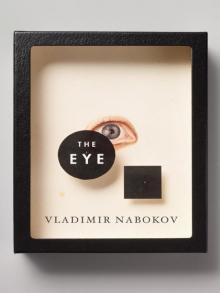 The Eye
The Eye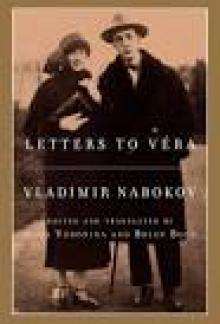 Letters to Véra
Letters to Véra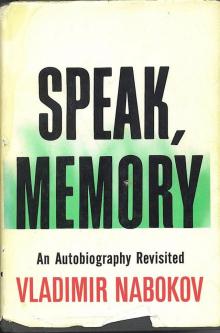 Speak, Memory
Speak, Memory The Gift
The Gift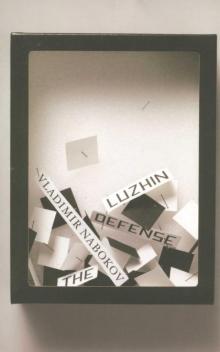 The Luzhin Defense
The Luzhin Defense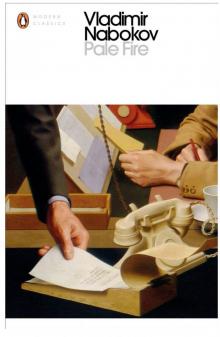 Pale Fire
Pale Fire Glory
Glory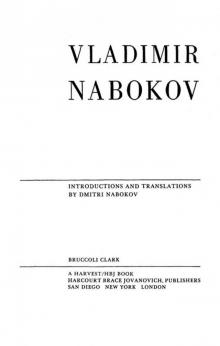 Man From the USSR & Other Plays
Man From the USSR & Other Plays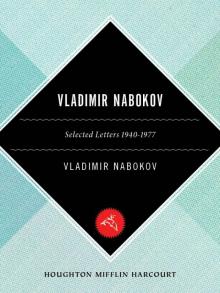 Vladimir Nabokov: Selected Letters 1940-1977
Vladimir Nabokov: Selected Letters 1940-1977 Strong opinions
Strong opinions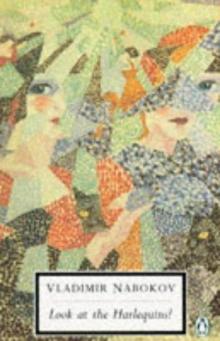 Look at the Harlequins!
Look at the Harlequins!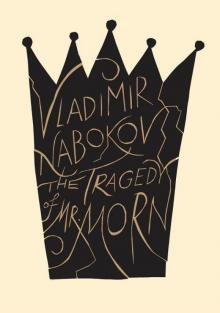 The Tragedy of Mister Morn
The Tragedy of Mister Morn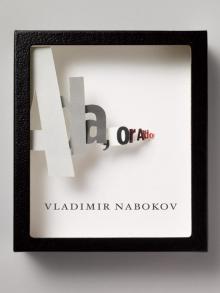 Ada, or Ardor
Ada, or Ardor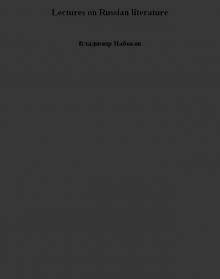 Lectures on Russian literature
Lectures on Russian literature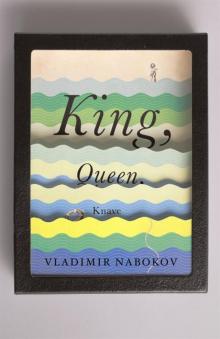 King, Queen, Knave
King, Queen, Knave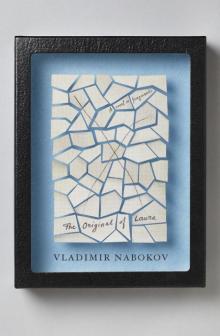 The Original of Laura
The Original of Laura